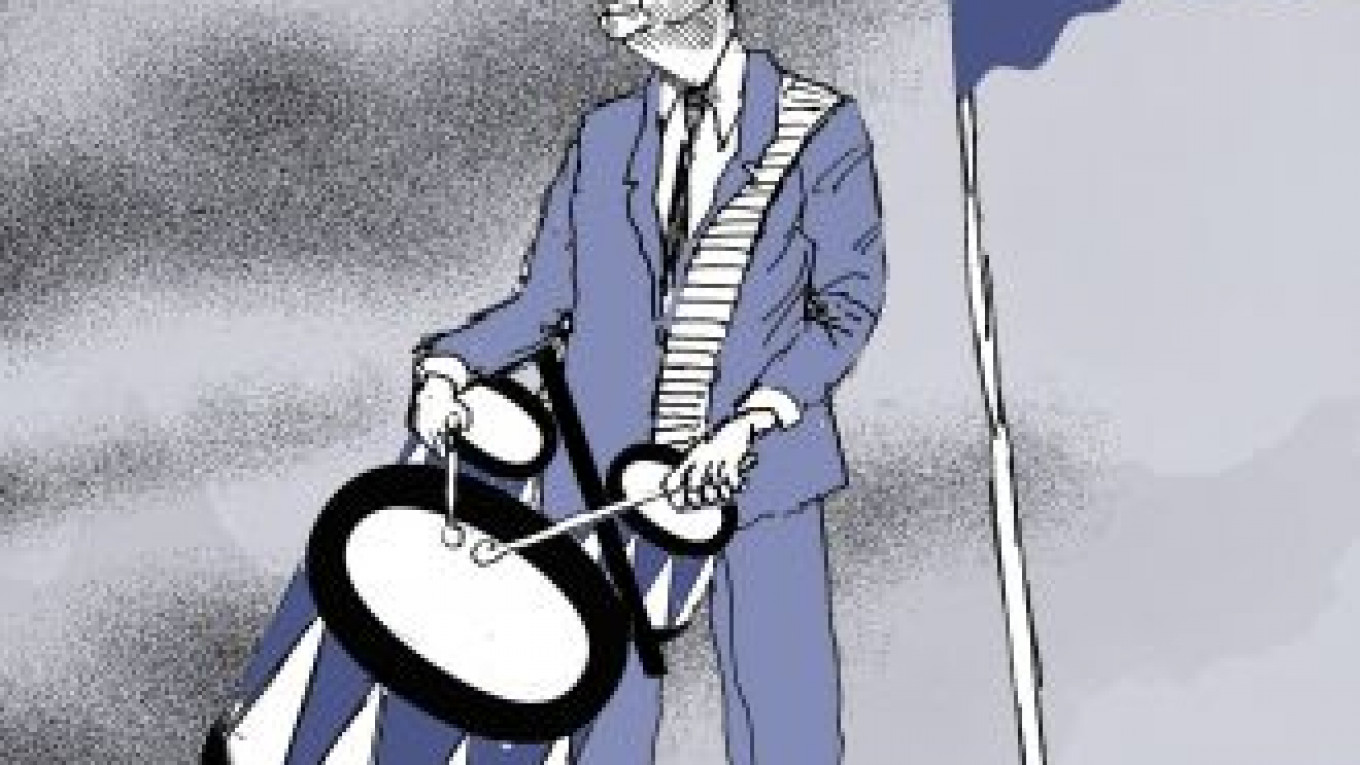Russia reached an important milestone in its economic development in the early 2000s. That point marked the end of what is commonly referred to as the "wild 1990s" and the start of rapid economic growth averaging 7 percent of gross domestic product annually until 2008. For most of the 2000s, the financial standing of most Russians improved, outside investment increased, and a middle class appeared.
There were five main components of the government's economic policy during Vladimir Putin's first two presidential terms that contributed the most to this success:
- The establishment of a law-governed state that actively protects the legal rights of its citizens
- A policy of strict fiscal discipline, balanced budgets and a focus on instituting structural reforms to the pension system, energy sector, housing and utilities and health care;
- Lowering the tax burden, which paid off as total tax collections increased;
- The privatization of state shares in companies, which sent a clear signal that the economy would rely on private initiative and fair competition as the chief engines of growth;
- And the strengthening of relations with developed countries so that Russia could derive the benefits of economic globalization and the free movement of capital.
As a result of these economic principles, the country saw a growth in entrepreneurship in the small and medium business sector, a partial reversal of earlier capital flight, increased investment by major foreign companies and rapid economic growth.
However, that positive trend was reversed by the end of the 2000s when the principle of loyalty began to outweigh the separation of state and private business. Businesses that were loyal to all the authorities' actions were better able to grow and prosper, whereas those that were identified as disloyal were not guaranteed the same right. Like the 1990s, certain captains of industry obtained privileged relations with the authorities. Only the names have changed while their close relationship to the Kremlin has been hidden from public view.
By the end of the 2000s, rule of law became more eroded, and the judiciary largely became subordinate to the executive branch and its siloviki. This has led to increased corruption and selective enforcement of the law and has left small- and medium-sized businesses vulnerable to raids and extortion carried out by the very authorities entrusted with protecting them. In the larger sense, the economy has become dominated by large corporations in the raw materials sector.
The reliability of the former fiscal policy has also become a thing of the past. Now, the price of oil determines whether the government will be able to meet at least half of its financial obligations. What's more, leaders have stopped implementing structural reforms or else have modified them so much that they are no longer consistent with the policy of fiscal discipline.
Even after oil prices reached unprecedented heights, the authorities tried to break their pledge to taxpayers by raising the social tax rate. Taxpayers might have been more understanding regarding that decision if the government were not continuing to earn more than enough income from raw materials exports.
Rather than continuing to reduce government involvement in the economy, the state expanded its role in the private sector by using export income to create state corporations, increase its share in banks, subsidize loyal businesses and finance major construction projects. It is clear that blurring the line between government and business has contributed to the growth of monopolies and unfair competition.
In addition, the economy did not grow by a single percentage point from 2008 to 2011, sparking a renewed flight of investment, as well as the country's most innovative minds. Of course, much of this was caused by the global economic crisis and even the most advanced economies experienced a slowdown. But over the same period, the economies of Russia's BRIC partners — China, India and Brazil — grew 31 percent, 26 percent and 11 percent, respectively, and the price of oil was, and still is, very favorable for Russia.
There is no need to point fingers, but the Russian people now face another choice like that of the early 2000s.
Oleg Vyugin is chairman of the board of directors of MDM Bank. This comment appeared in Vedomosti.
A Message from The Moscow Times:
Dear readers,
We are facing unprecedented challenges. Russia's Prosecutor General's Office has designated The Moscow Times as an "undesirable" organization, criminalizing our work and putting our staff at risk of prosecution. This follows our earlier unjust labeling as a "foreign agent."
These actions are direct attempts to silence independent journalism in Russia. The authorities claim our work "discredits the decisions of the Russian leadership." We see things differently: we strive to provide accurate, unbiased reporting on Russia.
We, the journalists of The Moscow Times, refuse to be silenced. But to continue our work, we need your help.
Your support, no matter how small, makes a world of difference. If you can, please support us monthly starting from just $2. It's quick to set up, and every contribution makes a significant impact.
By supporting The Moscow Times, you're defending open, independent journalism in the face of repression. Thank you for standing with us.
Remind me later.






